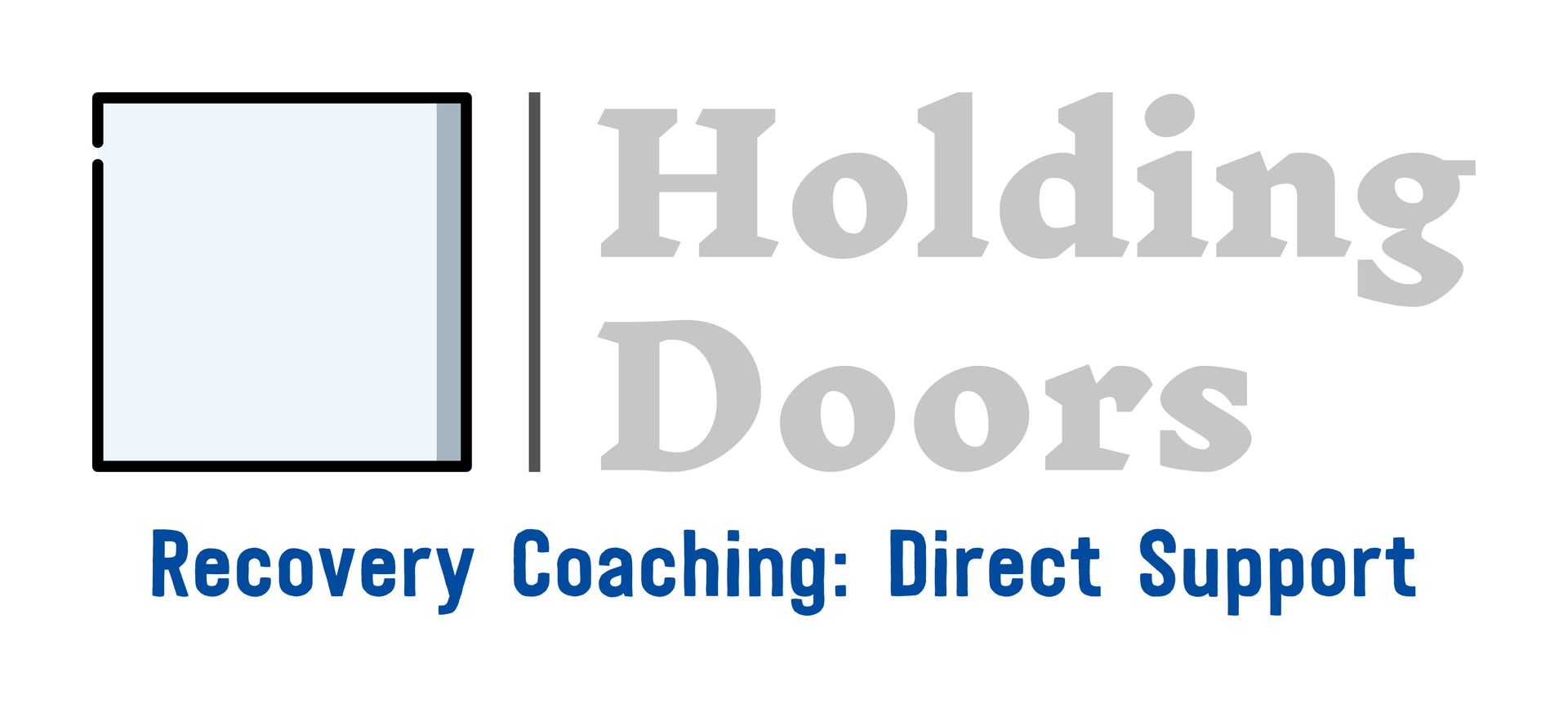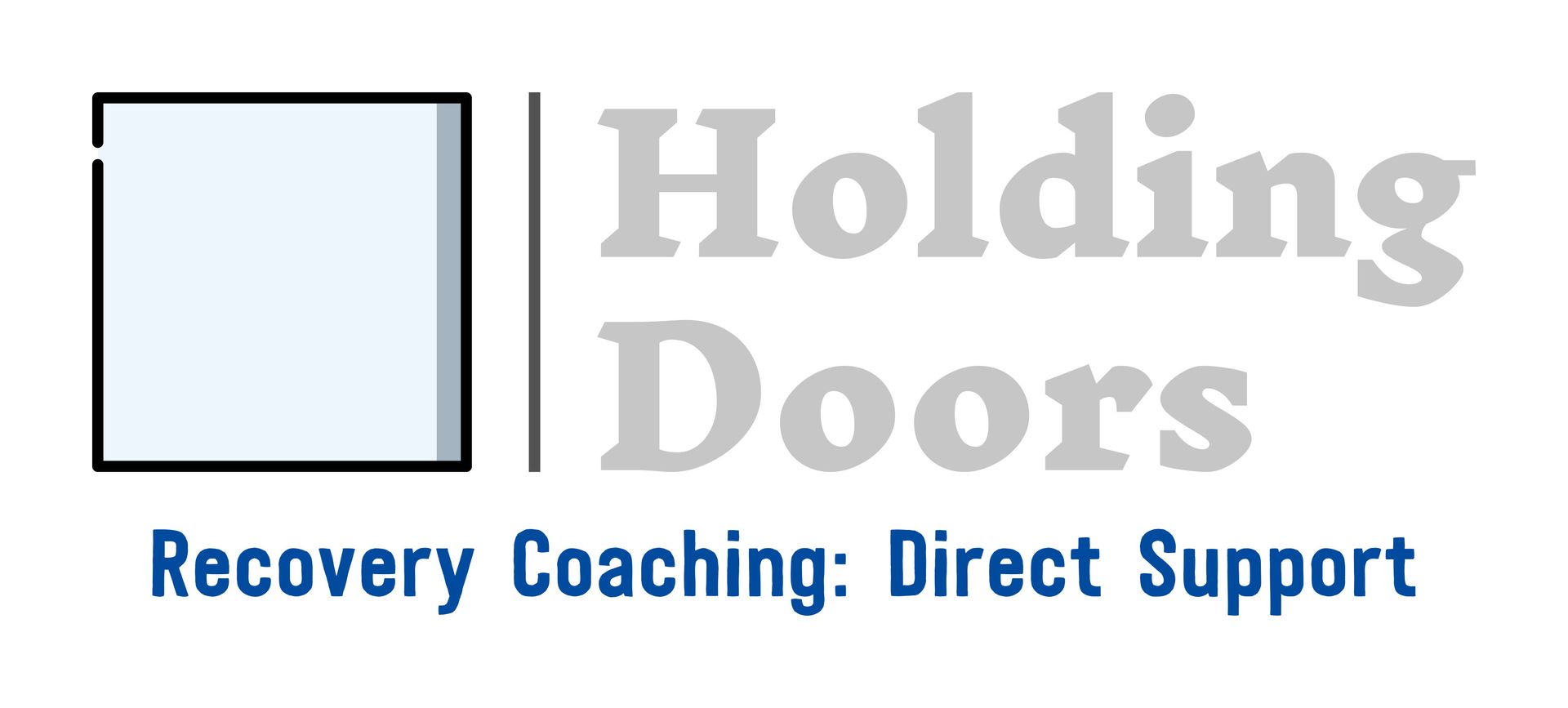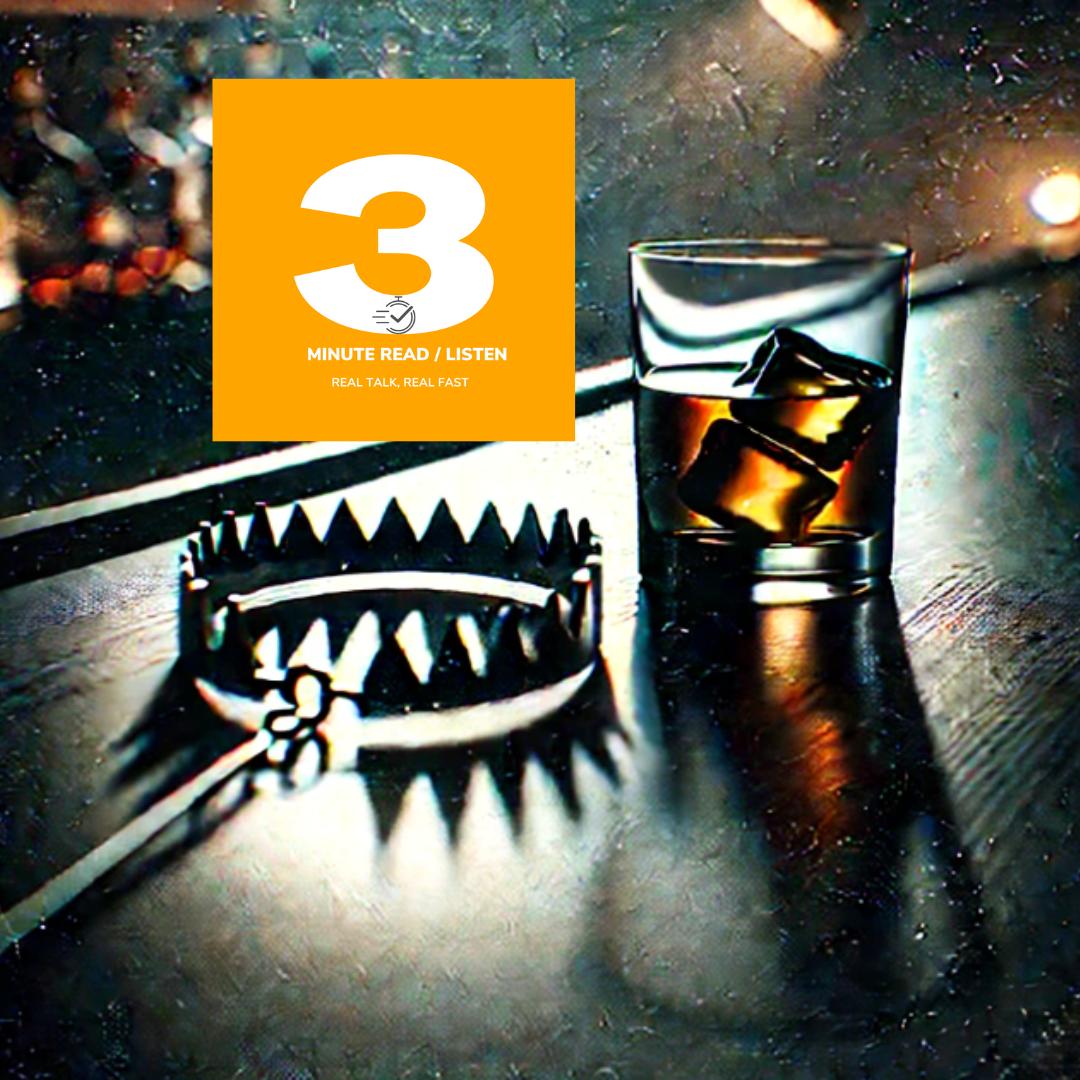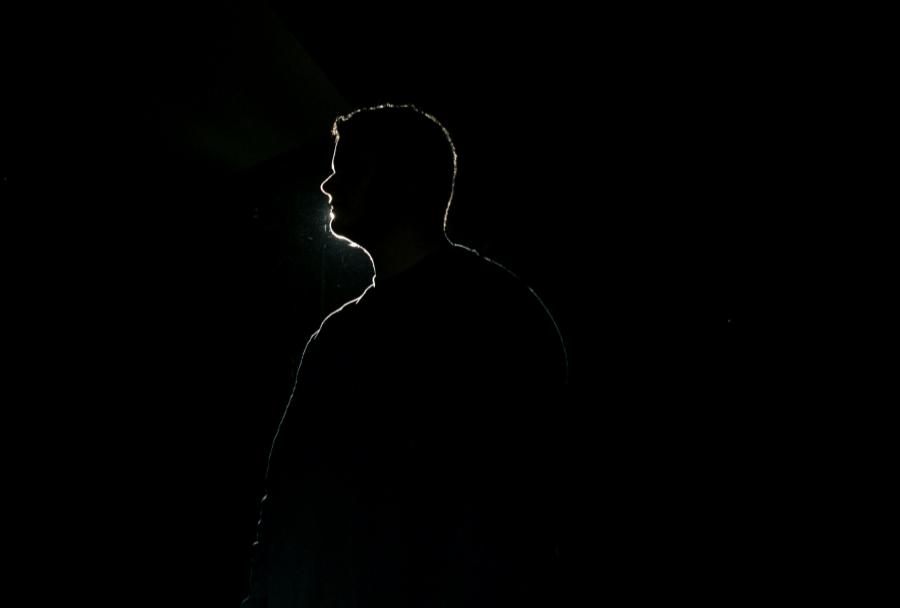When Facts Fail: How True Change Really Happens
You can't fact someone into change.
You connect them into it.
- Nate
When someone you love is caught in addiction, the instinct to argue makes perfect sense. "Look at the facts." "You're losing everything." "Can't you see what you're doing?" It feels logical. Rational. Even loving.
Buttttt:
Addiction doesn't live in the logical mind. It lives in the emotional mind.
Facts bounce off the walls that addiction has built for survival. Arguments only make the walls thicker. Because, for many people trapped in addiction, substances became their first responder. Their therapist. Their numbing agent. Their shield. You're not arguing against bad decisions. You're arguing against the one thing that seemed to help when nothing else did.
That's why facts don't work.
Connection does.
And let’s be honest...trying to argue someone into recovery with facts is like trying to convince your dog to stop chasing squirrels by showing him a PowerPoint presentation. It's weird, it's awkward, and it never works.
Speaking Different Languages
Helping someone in addiction is like trying to have a deep conversation with someone who speaks a different language. You can shout louder. You can get more emotional. But unless you learn their language... or at least understand it...you’re just creating more distance.
Connection is the translator.
That's why we start with ourselves first. Before we plan the "perfect" speech. Before we stack up the evidence. Before we map out the interventions. We get calm. We find peace. We anchor ourselves in our own core values. Because you can't offer safe ground if you're standing in a storm.
The Revolutionary Approach
Over the years, whether scribbled on napkins in coffee shops or drawn on whiteboards in sessions, I've walked hundreds (maybe thousands) through the "connection-first" model of intervention.
It's simple. It's human. And it changes everything.
Here's the flow:
1. Start With Yourself: Ground your energy before you approach them. Your peace sets the tone.
2. Respect Their Autonomy: They are a person first, not a project to fix.
3. Understand Addiction for Real: Addiction isn't about bad choices. It's about survival strategies that backfired.
4. Uncover Your Core Values: Why are you showing up? What do you believe about love, healing, and change?
5. Create a Personal Values Statement: Your own anchor when things get messy.
6. Explore Treatment Options Together: Gently offer choices, not ultimatums.
7. Active Listening then Message Delivery: Hear their fears, not just their mistakes. And know when to engage in real conversation.
Listening for Pain and Emotional Exhaustion
Some supporters make a serious and common error of rushing the addicted person to follow their schedule. You may feel frustrated when your loved one is in pain. You want fast results. But forcing someone with an addiction to think about recovery when they aren't ready won't help them embrace change any quicker.
Overlooking what your loved one wants and needs in a particular moment can, in fact, backfire. But if you listen carefully, your loved one will likely deliver hints about their readiness when they speak of their lives.
If a loved one says they are "tired," "sick," "depressed," "sad," "frustrated," "anxious," or similar words, they may be ready for change. These words indicate emotional exhaustion, and they may want to try something new. They may be more willing to discuss solutions.
If you hear a "pain word," try using these questions:
- Can you explain what you mean by (pain word)?
- How would you describe your (pain word)?
- Can you share what's causing these feelings?
- Can you tell me how your (pain word) started?
- What triggers these feelings?
- Could you help me understand more clearly by explaining what you mean by (pain word)?
When you hear a 'pain word' from your loved one, ask at least two of these questions to help them explore their distressing feelings more. Often, they will reveal a specific situation, emotion, or even admit their addiction as a cause. Even when addiction is not directly mentioned, it's still on their mind, but they may be guarding their substance use.
This method helps you understand them and can gently lead them to see how their addiction affects them, even if they aren’t ready to talk about it yet. I highly recommend you learn this set of questions and use them regularly in conversations with your loved one.
8. Continue Support Through Recovery: Recovery is a marathon...not a single conversation.
And most importantly:
Facts hit walls. Connection builds doors.
We’re not trying to smash down defenses. We’re trying to open doors...at their pace, in their language, with their dignity intact.
The Truth About Timing
I always tell families: This process rarely moves in a neat circle. Sometimes the listening comes first. Sometimes the education. Sometimes the exploration. It's messy. It's human. And that's okay. The goal isn't to force someone into immediate change. The goal is to be the safe connection they reach for when they're finally ready.
You can't control when that happens. But you can control the bridge you’re building.
And when they step onto it... willingly, freely... it’s because you didn’t bulldoze them with facts. You met them with presence, patience, and real love.
If you're walking through this right now—trying to help someone you love without losing yourself in the process... you're not alone.
I've stood on that curb. I've scribbled those napkins. I've walked those bridges with families just like yours.
Email me any specific question you have and I always respond (nathan@holdingdoors.com)
Or start by diving deeper into my free resources, including my book, "Anchor of Support," free now on Kindle Unlimited.
We'll start where you are. We'll build the door together.
Helping a loved one through addiction, family addiction support, addiction intervention strategies, connection not confrontation, emotional recovery coaching, recovery after detox, addiction doesn't respond to logic, building bridges in recovery, emotional intelligence in addiction, real recovery support, substance use recovery, stages of change addiction, helping an addict without confrontation, talking to loved ones about recovery, understanding emotional triggers, recovery planning support, addiction coping mechanisms, addiction emotional survival, addiction is not logic, recovery coaching for families, guiding loved ones into treatment, signs of emotional exhaustion addiction, early intervention addiction, how to support someone in recovery, first steps after detox, addiction recovery conversations, relapse prevention strategies, emotional support for recovery, creating safe conversations in recovery, recovery communication skills, bridging denial and recovery, core values and addiction support, family roles in addiction recovery, motivational interviewing addiction, addiction recovery without confrontation, how to talk about addiction, how to recognize readiness for change, emotional exhaustion in addiction, signs someone is ready for change, opening doors to recovery, building emotional bridges, addiction conversation starters, listening for pain points, compassionate recovery coaching, understanding addiction resistance, emotional barriers in addiction, family-centered recovery coaching, building trust in addiction recovery, holding space for loved ones, addiction education for families.
*This is a recovery/health coaching education service only. It is not, and is not intended to be, medical treatment or recommendations for medical treatment. Actual medical treatment must come from your physician. Telephone or video consultations do not replace the need for seeing a doctor in person. Holding Doors recovery educators and coaches cannot diagnose or prescribe medications, treatment, or testing procedures. Holding Doors recovery educators and coaches can provide general information that may need to be reviewed and approved by that person’s own physician. Consultations are not considered to be medical advice or diagnosis.











